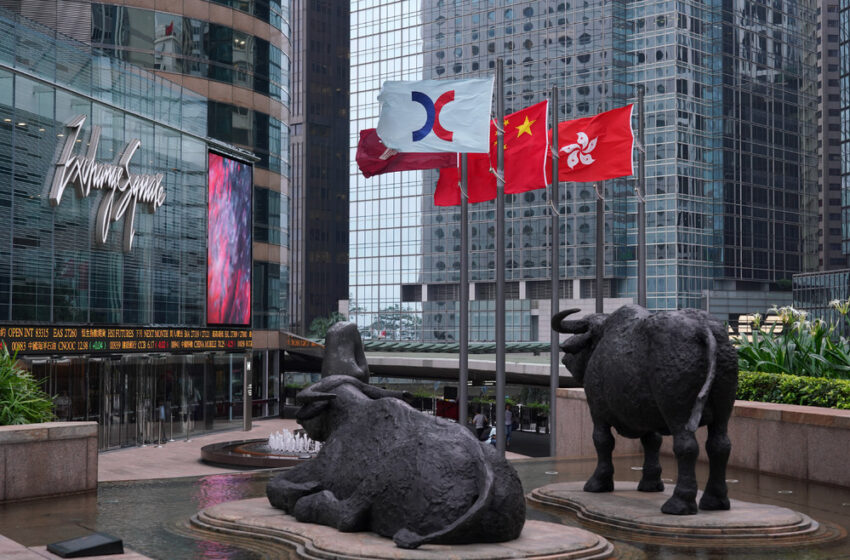
IMAGE CREDIT: The Standard
Hong Kong Exchange Likely to List 80 IPOs in 2024
China’s IPO market is set to stage a comeback with Hong Kong Exchange likely to list 80 listings with an estimated aggregate value of $13 billion this year, according to Deloitte China’s Capital Market Services Group (CMSG) said.
The forecast is backed by anticipated Chinese economic stimulus measures, ongoing stock market reforms including enhancements to the listing regimes, transaction mechanisms and Connect programmes between the Chinese mainland and Hong Kong, a slowdown of A-share IPO activity, and anticipated US interest rate cuts.
The market highlights will include listings from prominent companies, de-SPAC transactions, international companies and Chinese companies that switch their listing plans from the A-share market to Hong Kong, and others.
Deloitte China further said that Hong Kong has continued to be hit by external uncertainties and weak sentiment, particularly around an end to the US interest rate hike cycle. Its IPO market had a slow start in Q1-2024, recording no mega or large listings in a low valuation environment.
According to Deloitte China, many potential issuers are awaiting a market valuation rebound, but some companies are committed to listing in Hong Kong despite the current environment, driven by pressing fundraising needs to support their business development.
“Hong Kong remains a top choice for listings due to its standing as an international financial centre, numerous unique strengths and fundamentals, and ongoing market reforms,” it said.
Following the announcement of several regulatory measures that heightened scrutiny of A-share listings and issuer quality, taking market demand and supply into consideration and adopting an adjusted counter-cyclical approach, mainland IPO activity slowed further in Q1 2024. Compared to its performance over the last two years, overall A-share IPO market activity is forecast to slow considerably throughout 2024.
The CMSG forecast that the A-share IPO market will have around 115 to 155 new listings raising about $19.18 billion to $22.91 billion, lower than its previous expectation.
Elsewhere in China, the Beijing Stock Exchange could see 35–50 new issues, and the main boards in Shanghai and Shenzhen could see 25–35 between them. Companies such as audio app Ximalaya submitted a prospectus early this month and are on the comeback trail to market debuts. Ximalaya made an unsuccessful listing to raise $100 million on Hong Kong Exchange in 2022.
However, the listing Chabaidao, which has 8000 outlets across China, on Wednesday was something of a disappointment. The share price of its holding company, Sichuan Baicha Baidao, which aimed to raise $330 million from a public offer of 10% of shares, closed the day down 38% on the issue price.
All five markets in China will have fewer new listings this year.
The main boards in Shanghai and Shenzhen are expected to have 25-35 IPOs raising $10.21 billion to $11.59 billion. ChiNext, a NASDAQ-style subsidiary of the Shenzhen Stock Exchange, is forecast to have 35-45 new listings raising $4.14 billion to $5.11 billion.
The Shanghai Stock Exchange (SSE) STAR Market is anticipated to have 20-25 IPOs raising $3.86 billion to $4.83 billion. Beijing Stock Exchange is likely to have another 35-50 new listings raising $970 million to $1.38 billion, Deloitte China said.
Global IPO Market
As of 31 March 2024, in terms of the IPO funds raised, New York Stock Exchange led the global ranking after hosting four of the world’s top 10 IPOs, including the listing of Amer Sports, a Finnish multinational sporting equipment company, the world’s second largest new listing last quarter.
Nasdaq was ranked second after hosting three of smaller top 10 global IPOs, followed by Switzerland’s SIX Swiss Exchange in third place after the listing of Galderma, a skincare company that was the world’s largest IPO on 24 March 2024.
The National Stock Exchange of India took fourth position with a large volume of new listings. The new listings of a handful of large manufacturing and technology, media and telecommunications companies enabled Shanghai Stock Exchange to earn fifth place in the ranking.















